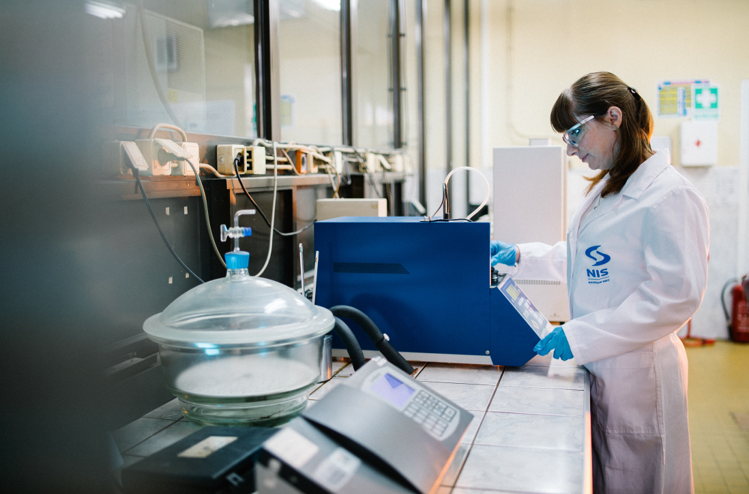Crude oil is the starting raw material for refinery processing and its physicochemical characteristics define which petroleum products will be produced in refinery plants.
In addition to the characterization of individual types of oil and its mixtures, before the start of processing in production complexes, the quality control of the raw material immediately before and after transport, during storage in tanks, and during the processing process, is an indispensable part of the process. Equally important as the crude oil quality control is the taking of a representative sample required for laboratory testing.
The Downstream laboratory operates within the Science and Technology Centre and it provides quality testing services during the entire process of oil production and refining.
The laboratory has a competent engineering staff that monitors, introduces, and develops test methods in accordance with world trends and EU directives in the field of testing oil and petroleum products.
The quality control process begins with testing the quality of crude oil in the fields in the plant laboratories, then testing the crude oil prepared for refining, through testing the quality of process streams and semi-finished products important for monitoring and controlling the operation of refinery plants, all the way to the quality control of final refinery products and the issuance of the Test Report. The Test Report confirms that the quality of the produced fuels is in accordance with the prescribed quality according to the requirements of national regulations.
Significance of additives and impact on the quality of the fuel
The production and distribution of fuels without the application of additives is practically unthinkable. The addition of additives is a very complex process. In order to improve a particular fuel characteristic, specific fuel analyses must first be performed to determine the most optimum additive type and the most optimal concentration of additives.
- Additives are not universal, and the choice of the optimum type of additive is possible only on the basis of laboratory tests. Only some additives are suitable for a certain fuel quality. The possibilities of predicting the appropriate additive and the optimum concentration depend on the analysis of components used in fuel mixing, and the analysis of tanks with non-additive and additive fuel – explains Nataša Badrljica, Director of the Laboratory.
The laboratory performs tests according to the latest national and international standards in the field of petroleum products, which ensures that the results of testing and quality control are comparative not only in national but also in international frameworks.
- Systematic quality control provides the possibility to know the quality of the product at any point in the product supply chain at any time. Quality monitoring is provided from the oil exploitation to selling points. The database that has been formed enables the comparison of fuel quality and timely reaction in case of quality impairment in any step in the delivery chain to end consumers – Badrljica points out.
In accordance with the requirements of the international standard SRPSISO/IEC 17025:2017, the laboratory is qualified and competent for 240 different tests of oil, petroleum products, antifreeze, oil and lubricants, water, catalysts, and industrial chemicals.
The laboratory proves its capability and competence through regular supervision by the Accreditation Body of Serbia (ATS).

